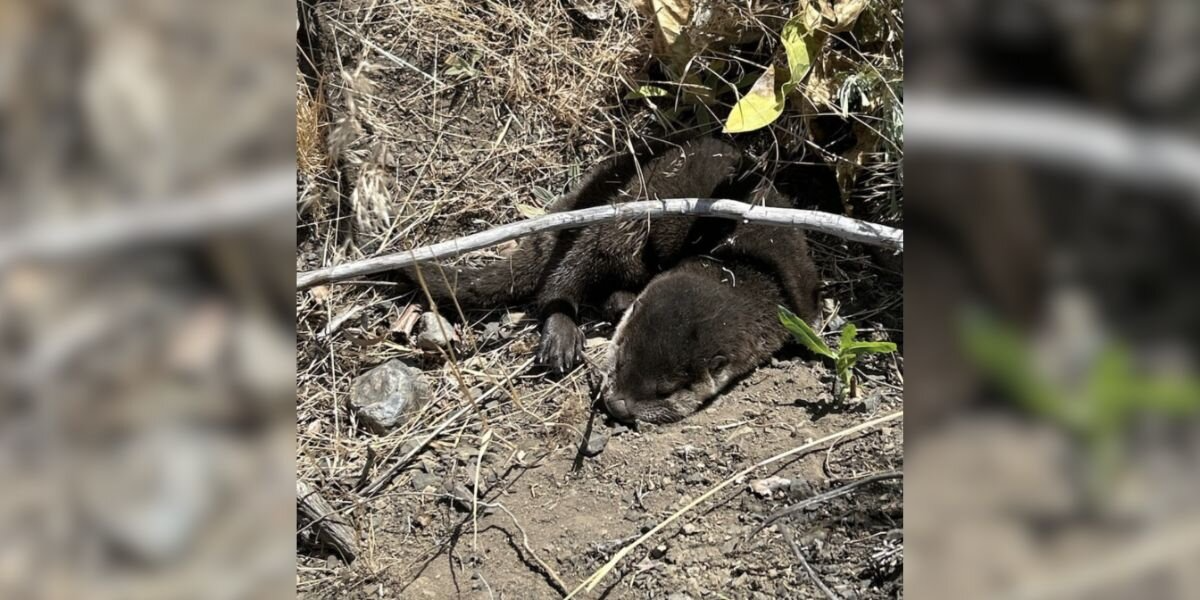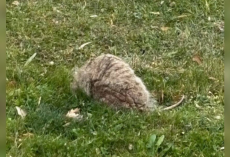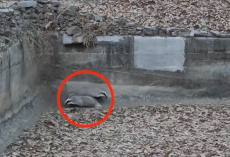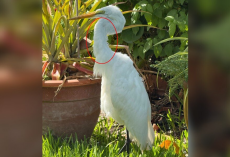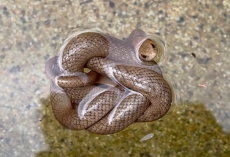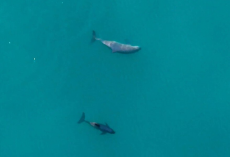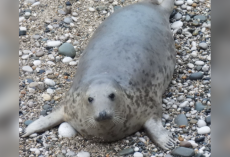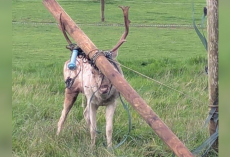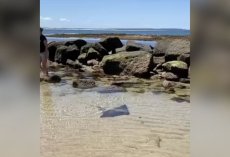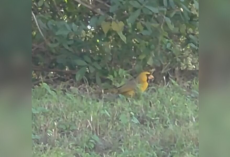When Oregon State Park Ranger Tyler Banks drove past a roadside ditch in Cove Palisades State Park one June morning, something odd caught his eye — a small, fuzzy brown lump nestled in the grass.
At first, it looked like nothing more than a bundle of fur. But something about it made him slow down and take a closer look.
Peering into the ditch, Banks realized the truth — the “lump” wasn’t an object at all. It was a pair of orphaned river otter pups, curled tightly together, cold, frightened, and alone.
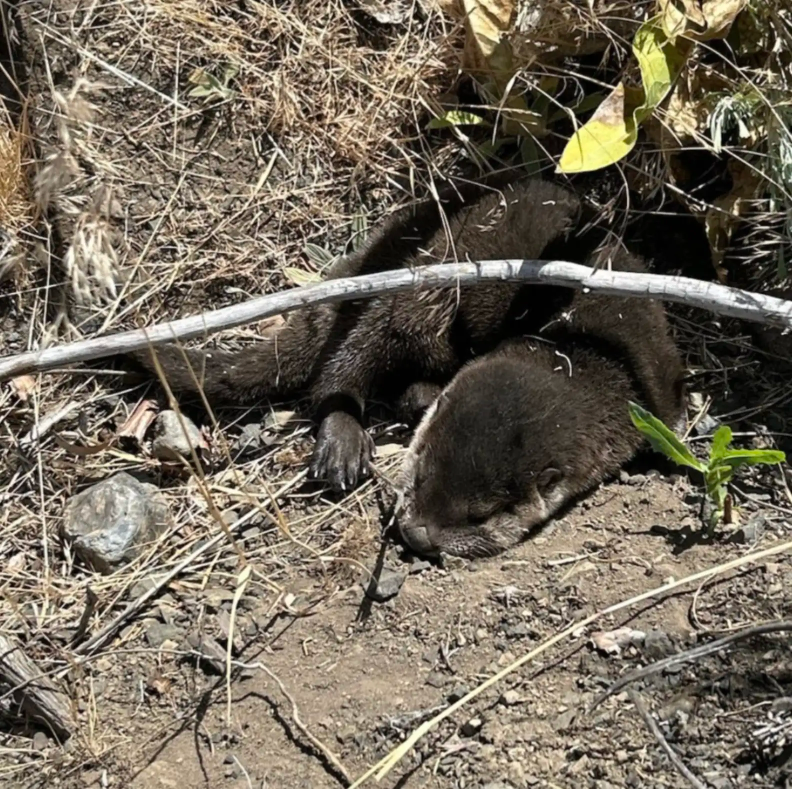
Without hesitation, Banks contacted a state police wildlife officer, who rushed to the scene. The officer gently scooped up the fragile pups and transported them to Think Wild, a wildlife rescue and rehabilitation center in Bend, Oregon.
At the animal hospital, the two sisters received lifesaving care. They were weak and dehydrated, but the team worked tirelessly to stabilize them — rehydrating their tiny bodies, checking for injuries, and helping them regain strength.
But caring for otters isn’t just about healing their bodies. Rescuers had to be careful not to make them too comfortable around people.
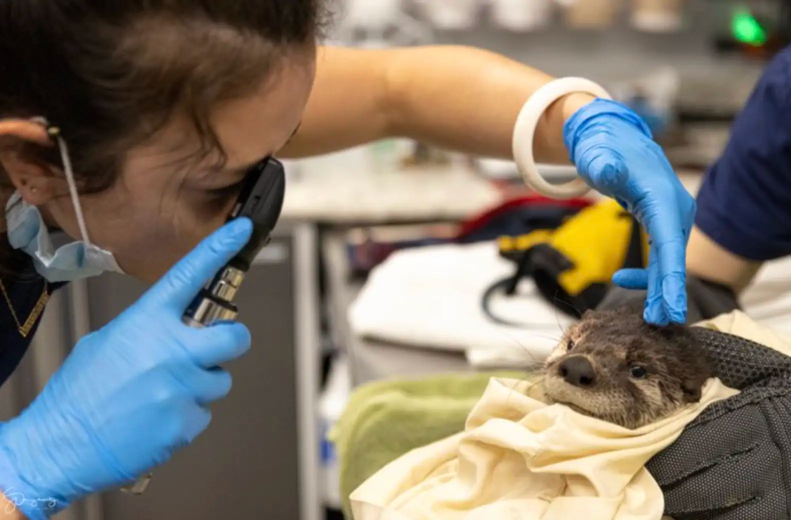
“River otters are highly intelligent and can easily become habituated to humans if proper precautions are not taken,” said Pauline Hice, Think Wild’s director of wildlife rehabilitation. “Animals that become comfortable around humans cannot safely or humanely be returned to the wild.”
So, staff members kept human contact to a minimum. The pups were fed through special systems that hid human scent, and the sound of voices was kept quiet.
Instead, the sisters found comfort in the only thing they had left from their past life — each other. They curled up together after every meal, their tiny bodies pressed close for warmth and security.
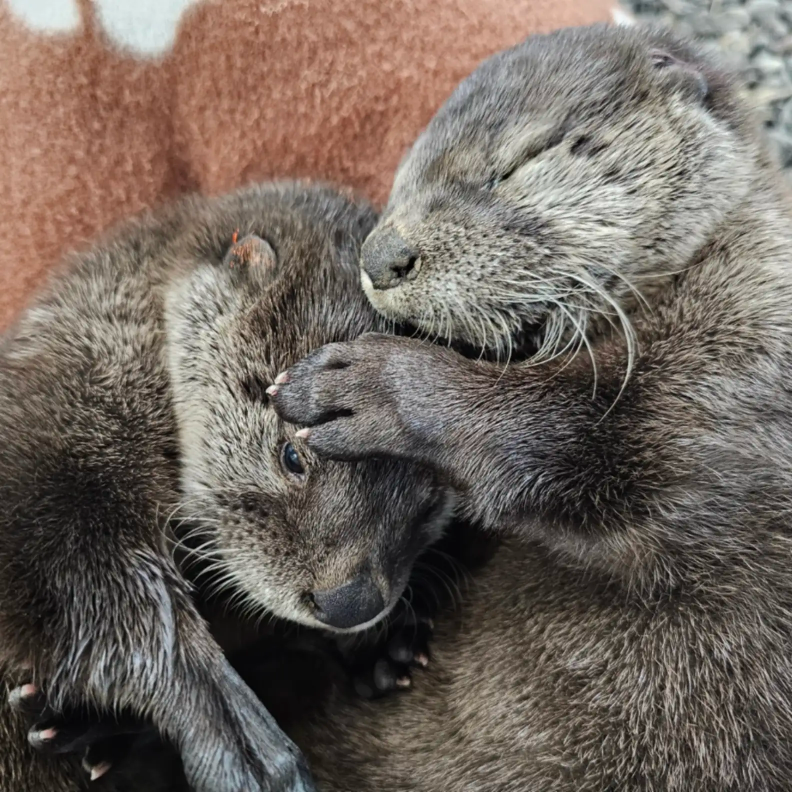
Once strong enough, the otter pups were transferred to the Wildlife Center of the North Coast for the next stage of their rehabilitation. There, they practiced swimming, hunting, and grooming — all the essential skills they would need to thrive in the wild.
Months later, experts determined that the time had finally come. The otters were healthy, confident, and ready to return home. Rescuers brought them back to the park where they’d been found and began what’s called a “soft release” — a gentle transition back into the wild.
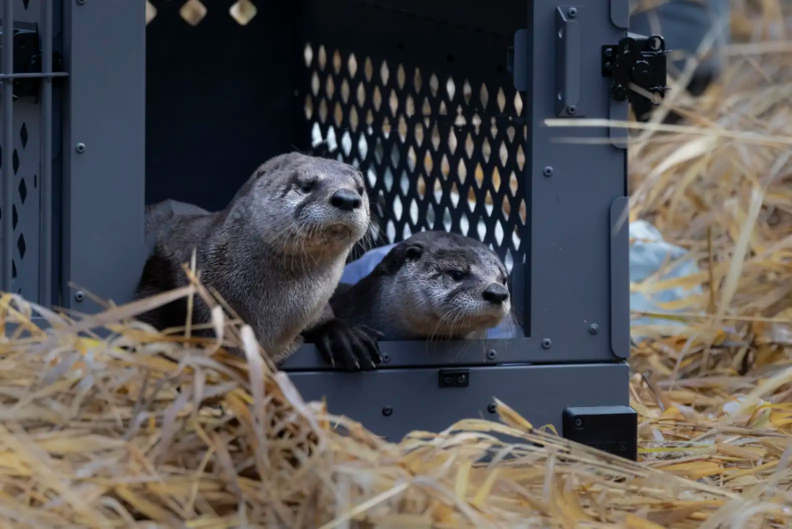
To make the move easier, the team installed a temporary den and provided small amounts of food through a special port, ensuring the otters never connected humans with their meals.
“This transition period is crucial for their survival,” Hice said. “By providing this additional support, we're giving these otters the best possible chance at a successful return to the wild.”
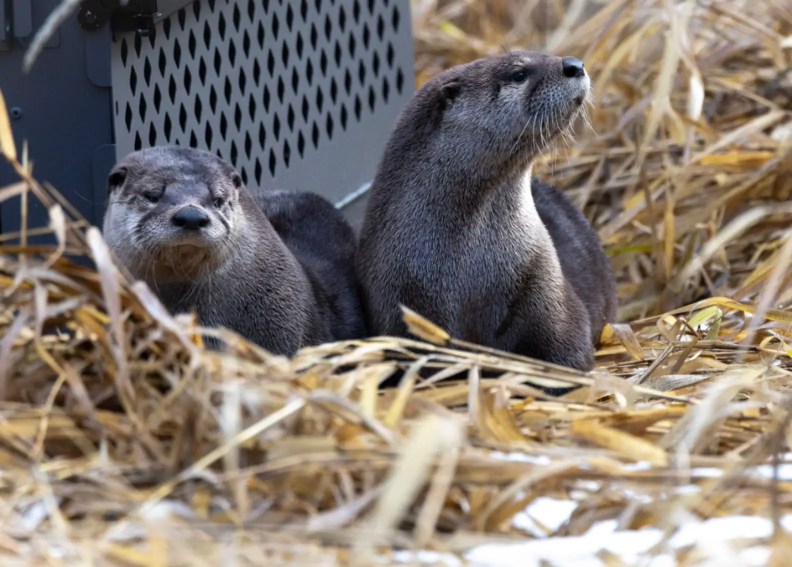
Finally, the moment arrived. The doors of their enclosure opened, and the two young otters slipped into the water — disappearing into the reeds and ripples of their river home.
“Now, these two otter pups are back where they belong,” Think Wild wrote on Facebook. “Exploring their new river home!”
For Ranger Banks, what started as a strange sight on the side of the road ended as something unforgettable — a reminder that even the smallest discovery can lead to a second chance at life.
If you’d like to help other animals like these sisters, you can donate to Think Wild or Wildlife Center of the North Coast. Donations will also help fund Think Wild’s new beaver and river otter rehabilitation enclosure by making a donation here , so that more stories like this can have a happy ending.

